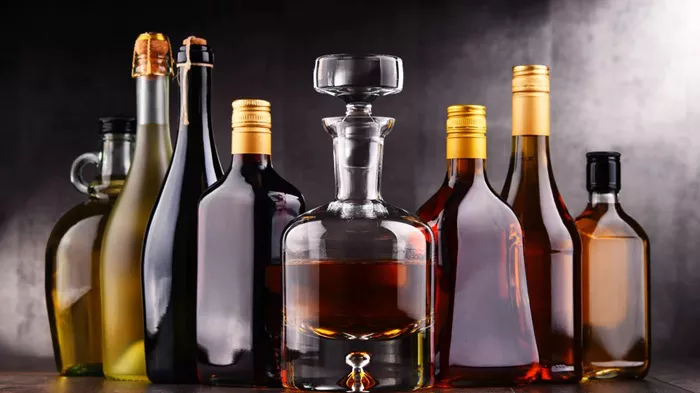Gin, with its rich botanical profile and complex flavor palette, has long been a staple in the world of spirits. However, its classification has been a subject of debate among enthusiasts and professionals alike. Is gin a spirit or liqueur? To delve into this inquiry, we must dissect the nature of gin, exploring its production, history, and legal definitions.
Defining Gin: A Spirit of Distinction
At its core, gin is unequivocally a spirit. Distilled from various grains or malt and flavored predominantly with juniper berries, gin embodies the essence of a traditional spirit. Its production involves distillation, typically in copper pot stills, where the base spirit undergoes infusion with botanicals, imparting the characteristic flavors that define gin. The predominant flavor of juniper distinguishes gin from other spirits, setting it apart as a unique entity in the world of alcoholic beverages.
The Role of Botanicals in Gin Distillation
Central to the debate of whether gin is a spirit or liqueur lies the intricate process of botanical infusion. Gin’s botanical recipe varies widely among producers, encompassing an array of herbs, spices, fruits, and roots. These botanicals contribute to the complexity of gin’s flavor profile, ranging from floral and citrusy notes to earthy and spicy undertones. While the infusion process may resemble that of liqueurs, wherein botanicals are steeped in alcohol, the primary objective in gin production remains the extraction of flavors through distillation rather than mere maceration.
Historical Evolution: From Medicine to Martini
Tracing back to its origins in medieval Europe, gin has undergone a remarkable evolution. Initially recognized for its medicinal properties, particularly in treating ailments such as kidney disorders and gout, gin gradually transitioned into a recreational beverage. Its popularity soared during the 17th century in England, where it became synonymous with the term “Dutch courage” during the Thirty Years’ War. The subsequent emergence of London Dry Gin paved the way for gin’s prominence in classic cocktails like the Martini and Gin and Tonic. Throughout its historical trajectory, gin has firmly asserted its status as a spirit, firmly rooted in distillation traditions.
Legal Framework: Codifying Gin’s Identity
The legal classification of gin provides further clarity on its status as a spirit. Regulatory bodies, such as the European Union and the United States Alcohol and Tobacco Tax and Trade Bureau (TTB), delineate specific criteria for labeling and production methods. In both jurisdictions, gin is categorized as a spirit, subject to regulations governing its alcohol content, labeling, and production techniques. While variations such as compound gin, distilled gin, and London Dry Gin exist, they all fall under the overarching category of spirits, reinforcing gin’s identity as such.
Gin versus Liqueur: Drawing a Distinction
To ascertain whether gin qualifies as a liqueur, it is imperative to discern the fundamental disparities between the two categories. Liqueurs, characterized by their sweetened and flavored nature, typically undergo a process of maceration or infusion wherein botanicals are steeped in a base spirit. Unlike gin, liqueurs often contain added sugar or syrup to enhance sweetness and viscosity. Furthermore, liqueurs encompass a diverse spectrum of flavors, ranging from fruit-based liqueurs like orange curaçao to herbal liqueurs such as Chartreuse. While gin shares some similarities with liqueurs in terms of botanical infusion, its emphasis on juniper-forward flavors and absence of added sweetness delineate it as a distinct spirit category.
Gin’s Versatility in Mixology and Culinary Applications
Gin’s versatility extends beyond the realm of mixology, permeating into culinary endeavors. Its botanical complexity and balanced profile render it a favored ingredient in both classic and contemporary cocktails. From the iconic Gin Martini to innovative creations like the Gin Basil Smash, gin serves as a cornerstone in the bartender’s repertoire. Moreover, gin’s affinity for botanicals makes it a sought-after ingredient in culinary preparations, infusing dishes with depth and aromatic richness. Whether incorporated into sauces, marinades, or desserts, gin’s multifaceted character transcends conventional boundaries, elevating culinary experiences to new heights.
Navigating the Diversity of Gin Styles
The landscape of gin encompasses a myriad of styles, each bearing distinct characteristics reflective of their production methods and botanical compositions. London Dry Gin, exemplified by its juniper-forward profile and absence of artificial additives, remains a benchmark of quality and tradition. Plymouth Gin, hailing from the historic distilleries of Plymouth, England, exhibits a slightly sweeter and fuller-bodied flavor profile, owing to its unique blend of botanicals. New Western or Contemporary Gins, on the other hand, diverge from traditional conventions, prioritizing innovation and experimentation in botanical selection and flavor extraction techniques. While the nuances among gin styles may vary, they all share the common denominator of being classified as spirits, underscoring their adherence to traditional distillation principles.
The Global Resurgence of Gin: A Testament to its Enduring Appeal
In recent years, gin has experienced a renaissance, captivating consumers worldwide with its diverse array of expressions and flavor profiles. Craft distilleries have proliferated, offering consumers an unparalleled selection of small-batch gins infused with locally sourced botanicals. This resurgence underscores gin’s enduring appeal and its capacity to evolve amidst changing consumer preferences. Whether sipped neat, mixed in cocktails, or incorporated into culinary creations, gin continues to captivate aficionados and novices alike, solidifying its position as a quintessential spirit in the global drinkscape.
Conclusion
In conclusion, the debate surrounding whether gin is a spirit or liqueur ultimately hinges on an understanding of its production process, historical evolution, legal classification, and inherent characteristics. While gin shares certain similarities with liqueurs in terms of botanical infusion, its emphasis on distillation and juniper-forward flavors unequivocally classifies it as a spirit. As gin continues to evolve and innovate, its enduring legacy as a quintessential spirit remains unassailable, cementing its status as a cherished libation enjoyed by connoisseurs and enthusiasts worldwide.


